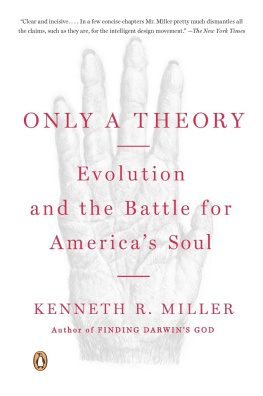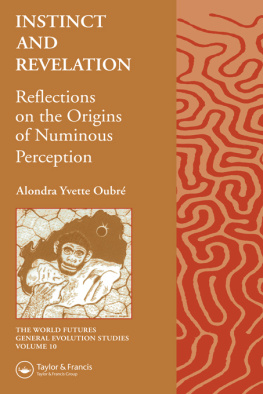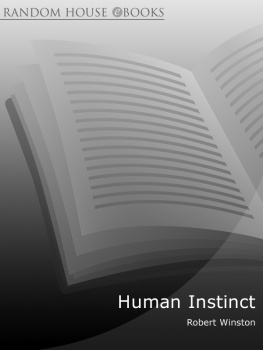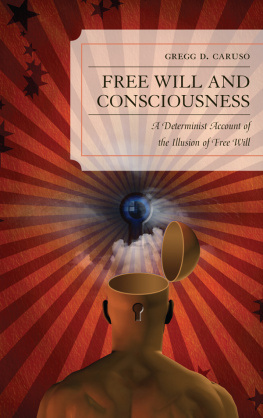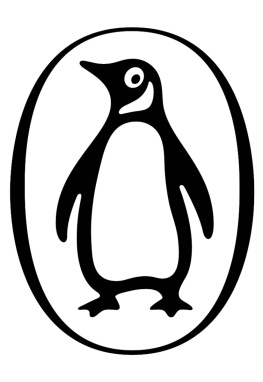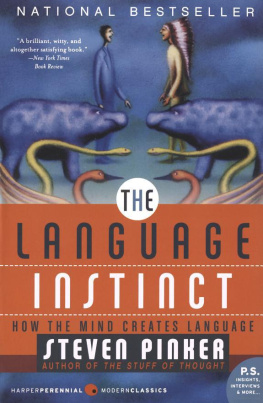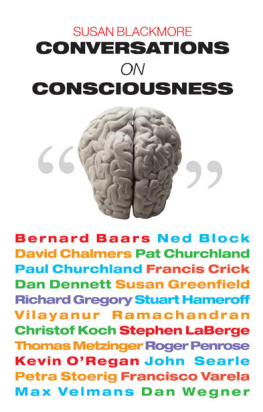Kenneth R. Miller - The Human Instinct: How We Evolved to Have Reason, Consciousness, and Free Will
Here you can read online Kenneth R. Miller - The Human Instinct: How We Evolved to Have Reason, Consciousness, and Free Will full text of the book (entire story) in english for free. Download pdf and epub, get meaning, cover and reviews about this ebook. year: 2018, publisher: Simon & Schuster, genre: Religion. Description of the work, (preface) as well as reviews are available. Best literature library LitArk.com created for fans of good reading and offers a wide selection of genres:
Romance novel
Science fiction
Adventure
Detective
Science
History
Home and family
Prose
Art
Politics
Computer
Non-fiction
Religion
Business
Children
Humor
Choose a favorite category and find really read worthwhile books. Enjoy immersion in the world of imagination, feel the emotions of the characters or learn something new for yourself, make an fascinating discovery.

- Book:The Human Instinct: How We Evolved to Have Reason, Consciousness, and Free Will
- Author:
- Publisher:Simon & Schuster
- Genre:
- Year:2018
- Rating:4 / 5
- Favourites:Add to favourites
- Your mark:
- 80
- 1
- 2
- 3
- 4
- 5
The Human Instinct: How We Evolved to Have Reason, Consciousness, and Free Will: summary, description and annotation
We offer to read an annotation, description, summary or preface (depends on what the author of the book "The Human Instinct: How We Evolved to Have Reason, Consciousness, and Free Will" wrote himself). If you haven't found the necessary information about the book — write in the comments, we will try to find it.
The Human Instinct: How We Evolved to Have Reason, Consciousness, and Free Will — read online for free the complete book (whole text) full work
Below is the text of the book, divided by pages. System saving the place of the last page read, allows you to conveniently read the book "The Human Instinct: How We Evolved to Have Reason, Consciousness, and Free Will" online for free, without having to search again every time where you left off. Put a bookmark, and you can go to the page where you finished reading at any time.
Font size:
Interval:
Bookmark:
Thank you for downloading this Simon & Schuster ebook.
Get a FREE ebook when you join our mailing list. Plus, get updates on new releases, deals, recommended reads, and more from Simon & Schuster. Click below to sign up and see terms and conditions.
CLICK HERE TO SIGN UP
Already a subscriber? Provide your email again so we can register this ebook and send you more of what you like to read. You will continue to receive exclusive offers in your inbox.

To my teachers, especially the incomparable Mr. Paul Zong, who first led me to discover the wonders of biology.
S tories matter. And once, we had one.
We knew our place. We were the first fruits of creation, stewards of the Earth, masters of the living world. Whether we traced our kind to a rebellious first couple or the upward climb of the Dineh, our people, into the Fourth World, we had a story. That story, or more properly those many stories, confirmed the dignity and value of human existence. They set us apart from the animals. They assured us that our actions mattered, our choices were real, and our lives fit into a fabric of significance.
To be sure, those visions were not all sweetness and light. Many were filled with darkness, many reflected the depths of the human spirit, and many served to spark savage excesses of passion, greed, and even murder. Yet, even in the worst of ages, those narratives filled one of the most basic human needs. They fashioned a sense of place, mission, and value that set our species, for better or for worse, at the pinnacle of the living world. Our Earth was not only the center of the universe; it was home to the only species in that universe that truly mattered.
And then we lost it. Our stories seemed to vanish, and with them our souls, our place in the heavens, and in many ways, ourselves.
The story of that loss has been told many times, sometimes in the context of the enlightenment, of the scientific revolution, or of the great age of discovery. In retrospect, it was surely more triumph than tragedy. The perplexing movements of planets through space yielded to a mathematics of elegance and precision. The bewildering chemistry of matter was reduced to a table of elements, and the elements themselves to aggregates of simple particles. Electricity and magnetism were united, and new tools fashioned to probe ever deeper into the heart of existence.
But of all these great advances, one stood apart in the way it spoke directly to the human conception of self. It was, of course, the theory of evolution by natural selection. To many, it seemed that Charles Darwins ideas on the origin of species had drained the lifeblood from our comforting self-portraits. The old certainties were truly gone, and something new had to take their places. But what? In a sense, we had become Darwins people, but what could that possibly mean?
Not surprisingly, many were not willing to let the old stories go quietly. While some, like Harvard botanist Asa Gray, were quick to accept Darwins great idea, others fought back as though civilization itself were at stake. Books were censored, teachers put on trial, and laws passed to prevent students from learning of any theory teaching that man has descended from a lower order of animals. One such law, in the state of Tennessee, led to the infamous Scopes monkey trial in 1925. That law stood until the Supreme Court struck it down in 1968, but even that great court could not strike down popular resistance to so subversive and revolutionary an idea as evolution.
Even today, many fight back by attacking evolution itself, casting themselves as creationists who reject broad areas of consensus in modern science. To them, cosmology, astronomy, physics, and even geology have conspired to spin an evolutionary epic that is, as one American politician recently claimed, a lie from the pit of hell. Others advance an idea known as intelligent design in which the mechanisms of evolution are rejected as inadequate to account for the complexity of living things. Instead, the actions of a designer are invoked, an intelligent agent standing outside of nature while serving as the grand architect of life. In 2005, this was exactly the argument made in Kitzmiller v. Dover , a highly publicized federal trial in Pennsylvania, a trial in which I served as lead witness against intelligent design.
What both these lines of attack have in common is the call for evolutionary theory to be discarded and replaced by something radically different. The motivations in each case, sometimes expressed quite openly, are not so much to correct a scientific error as they are to replace science itself with a view of human origins consistent with certain religious teachings.
As interesting as it might be to take these arguments apart, point by point, that has already been done, not just in the Kitzmiller trial but in a host of popular books by scientists and science writers. No point in beating that poor horse again. But I dont think the concerns of all who resist evolution should be dismissed as nave, trivial, or uninformed. In fact, the passionate unease with which some of evolutions critics regard many of its messages proclaimed in the name of science speaks to the humanist within many scientists, including myself. I believe this unease derives not so much from how we came to be, but rather from what we should make of ourselves as creatures of evolution. In other words, such discontent arises from a fear that accepting the theory of evolution suggests that we are mere products of evolution, neither Gods people nor Darwins, but just another of a multitude of creatures pointlessly struggling for existence.
To many, there is a sense that accepting evolution also means accepting a worldview that denies the significance of the human species, explains away our social institutions as artifacts of natural selection, and depicts individual thought and behavior as robotic responses to inputs from the environment. As Sam Harris puts it in his book on free will, the idea that we, as conscious beings, are deeply responsible for the character in our mental lives and subsequent behavior is simply impossible to map onto reality. However we may regard ourselves, we are driven, according to Harris, by forces over which we have no real control. In Harriss interpretation of the evolutionary narrative, we seem to be nothing more than casual throw-offs, byproducts of a universe far greater than our imagination, a universe in which we are no more than thoughtless works of nature.
Evolution, this line of thinking goes, is driven entirely by natural forces, by principles that apply to living and nonliving matter alike. If, as Steven Pinker writes, science has exposed the absence of purpose in laws governing the universe,absence of purpose in the evolutionary process itself. In our modern, sophisticated, rational world, those who hold this view of evolution regard the human presence as nothing special. They see us as cosmic accidents of no significance, depict human art and creativity as the pointless byproducts of natural selection, and regard purpose, self, and even consciousness as chemical illusions that signify nothing, whatever their sound and fury. They, in short, grimly accept the view that we humans matter very little in the grand scheme of things. The story of human evolution, according to those who spin this narrative, is one of pointless accident, dark struggle, and ultimate meaninglessness. No wonder so few want to hear the bad news.
But there is something both illogical and unsound with any narrative that depicts a species able to unravel the story of evolution as insignificant carbon-based fuzz on the surface of a small blue planet. In fact, I emphatically believe there is something special about Homo sapiens , something that truly sets us apart. So it is imperative to ask if we need a fundamental revision of evolutionary theory to account for the specialness of human nature. As we will see, I dont think so. What we really need is to understand and appreciate the beauty and subtlety of evolution in greater depth than ever.
Next pageFont size:
Interval:
Bookmark:
Similar books «The Human Instinct: How We Evolved to Have Reason, Consciousness, and Free Will»
Look at similar books to The Human Instinct: How We Evolved to Have Reason, Consciousness, and Free Will. We have selected literature similar in name and meaning in the hope of providing readers with more options to find new, interesting, not yet read works.
Discussion, reviews of the book The Human Instinct: How We Evolved to Have Reason, Consciousness, and Free Will and just readers' own opinions. Leave your comments, write what you think about the work, its meaning or the main characters. Specify what exactly you liked and what you didn't like, and why you think so.

